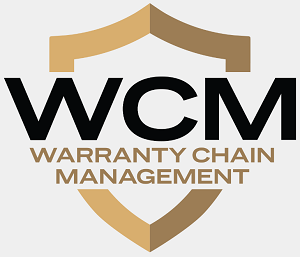Home Service Technology: How Smart is Your Home?
The Top 5 Ways Technology Will Transform the Home Warranty Business
Editor's Note: This column, by Kevin Wallach and Gary Serbousek,
is the latest in an ongoing series of contributed editorial columns.
Readers interested in authoring a contributed column in the future
can click here to see the Guidelines for Editorial Submissions page.
By Kevin Wallach and Gary Serbousek
Big Data, the Internet of Things (IoT), and analytics have all contributed to elevating the consumer experience, improving efficiency, and automating the recordkeeping and search of information. It's safe to say, these forms of technology have had far reaching implications that touch on most every part of every person's life today.
So, what about in our homes?
The IoT -- or the network of devices, home appliances, and even things like cars embedded with electronics, software, sensors, and actuators that enable connectivity and the exchange of data -- has successfully made its way into and transformed most every industry, but not home warranties, yet.
The Top 5 Ways Technology Will Transform the Home Warranty Business
So far, the home warranty industry has been slow to adopt all that this new technology has to offer, but the opportunities and benefits are abound.
In the not-so-distant future, home service contract companies will begin utilizing smart home technology and internet connected devices within the home to improve the overall efficiency of service to home service contract customers. For those still on the fence about the relevancy of this technology, and the benefits of it, below are the top five ways it will transform the home warranty business -- for the better.
1. False claim rates will decrease.
This applies to both sides of the home warranty transaction; not only will consumers have more credible data to call in a claim with -- if they have to call it in at all -- but they can rest assured knowing there is no wool being pulled over their eyes when it comes to repairs they don't need. For home warranty providers, this will mean more targeted repair calls, and technicians will not have to rely on the self-diagnosis of their customers.
2. It will lower costs.
This also applies favorably to both consumers and providers of home service contracts. Because claims will be targeted and repairs will be pinpointed, the cost to consumers and providers will decrease.
3. It will make home service contracts more customizable.
Instead of blanketed contracts with catch-alls, technology-enabled home service contracts will mean more customized clauses based on actual systems and appliances – and their current status.
Right now, there is not much difference in a home service contract covering a $5,000 refrigerator versus a $1,000 one, and this can mean higher home warranty rates for consumers and more risk for providers. Actuators and sensors tied to monitoring devices will mean the make and model of these appliances and systems will be recorded, as well as provide a reading of their components.
4. Better, more accurate predictions will mean better, more accurate service.
Repair technician dispatching processes will be improved through coordinated technology -- not to mention the ability to coordinate across separate platforms -- as more and more household systems, appliances, and devices are web connected and capable of sending real-time malfunction and/or damage information to smart phones, property managers, and monitoring services.
Damage and malfunction causes will be able to be diagnosed by integrated technologies before the repair contractor arrives at the house, giving home service contract companies the opportunity to approve repairs, estimate out-of-pocket costs to the consumer, and better prepare for the service call in general, including bringing all parts and tools needed to reduce the need for multiple service trips.
5. Consumer satisfaction ratings will improve.
All home warranty companies can agree: It is much more cost-effective to renew customer contracts and retain existing customers than it is to try to get new ones. And yet, one of the biggest areas of opportunity within the home warranty industry lies in the ability to improve customer satisfaction ratings. Today's reviews are riddled with unhappy consumers complaining of inflated services resulting in higher costs and misaligned customer-representative experiences.
Technology-enabled home service contracts will change a lot of that by providing the sought-after transparency consumers want while decreasing the costly overhead of employing customer service representatives manually fielding service requests. Instead, employees of home warranty companies can focus on providing informed, high-touchpoint support and troubleshooting on a more strategic and consumer-focused basis. The human relationship part of home warranties will vastly improve, and so, too, will the quality of the service being provided.
The Future of Technology-Enabled Home Service Contracts
Pioneers in the industry are already making use of data-backed, technology-based service. For those home service contract companies looking to do more, providers can consider offering discounts to customers who have smart homes and who voluntarily share the data being generated by connected and covered systems and devices in their home. And, rebates and other promotional cost savings will incentivize home service contract consumers to begin purchasing appliances and systems like this moving forward.
Technology is constantly evolving. It will take time for homes to completely make the transition to becoming fully integrated smart homes, but it's a trend the home warranty industry can most certainly benefit from.








